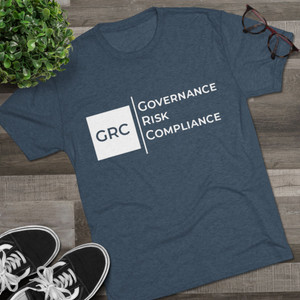Unified Compliance Framework (UCF)
Name: Unified Compliance Framework (UCF)
Type: Metaframework (framework of frameworks)
Authoritative Source: Network Frontiers LLC
Certification Available: No. UCF does not offer a third-party certification against UCF controls.
Too Long / Didn’t Read (TL/DR): The Unified Compliance Framework (UCF) is a powerful tool for organizations grappling with overlapping cybersecurity obligations. It offers a harmonized control catalog that maps across hundreds of statutory, regulatory, frameworks and other sources to help organizations build and maintain compliance coverage. The UCF does not replace security frameworks, instead it complements existing laws, regulations and frameworks by enabling single control implementations to satisfy multiple mandates. This can accelerate program deployment, reduces compliance fatigue and positions enterprises for more effective, unified audit readiness.
Cost To Use The UCF
The UCF is a commercial product offered through the Common Controls Hub (CCH) platform and its cost varies depending on subscription level, user count, features and organization size. There is a free tier that contains limited access to UCF content, but multi-user and enterprise licenses can run into the tens of thousands of dollars per year.
Restrictions On Using The UCF
The UCF is Intellectual Property (IP) managed by Network Frontiers LLC and its use is governed by strict licensing agreements and terms of service. Organizations and individuals using the UCF must adhere to usage restrictions outlined in the UCF license agreement and associated documentation.
Origins of UCF
The genesis of the UCF traces to the early 2000s when organizations faced increasing, fragmented regulatory demands from HIPAA, Sarbanes-Oxley and other data protection laws that tended to be implemented in siloes. Compliance professionals struggled with redundant work, inconsistent terminology and unsustainable audit volumes.
The UCF leverages patented Natural Language Processing (NLP) methodologies to break authority documents into granular mandates that identifies noun-verb pairing to generate relational mapping. Due to harmonized compliance content, the UCF is adopted by many GRC platforms to provide control content and mapping.
Purpose of UCF
Modern organizations often must comply simultaneously with numerous cybersecurity and privacy mandates. The UCF addresses this complexity by serving as a meta-framework (e.g., framework of frameworks) that aligns the overlapping requirements of hundreds of authority documents into a unified taxonomy of “common controls” to reduce duplication of efforts.
Developed to reduce duplication, lower compliance costs and bolster audit readiness, the UCF is particularly powerful in multi-compliance environments. It enables cybersecurity teams to manage control architectures efficiently, confidently demonstrate alignment across standards and maintain resiliency as regulations evolve.
Benefits of Using The UCF
- Efficiency and Risk Reduction
- UCF typically reduces the volume of controls that eliminates redundancy among frameworks.
- Reduces audit overhead by centralizing evidence and mapping.
- Cross-Functional Alignment
- Offers a single compliance language that enables security, legal, risk, audit and operations to coordinate more effectively.
- Scalability and Global Reach
- With mappings to over 800+ authority documents, the UCF supports international and multi-sector compliance needs, scaling as requirements evolve.
- Maintenance-Aware
- UCF staff update mappings as laws change, minimizing internal catch-up cycles and ensuring organizations remain aligned with the latest obligations.
Limitations on Using The UCF
- Initial setup and scoping can be resource-intensive;
- The UCF does not implement controls, it simply provides a mapping structure and control definitions and organizations must operationalize them (e.g., policies, standards, procedures, etc.).
- Requires governance discipline and investment in documentation.
- Organizations must still validate that mapped controls are appropriately adapted to their specific context.
The Indispensable Role of Documentation In UCF
Documentation is not a byproduct; it is the currency of compliance. Within the UCF, documentation performs several critically intertwined functions:
- Control Evidence. Demonstrates that control implementations actually meet the intent of multiple mandates simultaneously;
- Audit Readiness. Auditors review control mappings and evidence for multiple frameworks in a unified audit rather than fragmented siloes;
- Change Governance. As authority documents evolve, documented mappings and control definitions enable rapid impact assessments and adjustments; and
- Organizational Assurance. Provides a cohesive story to leadership and boards on compliance posture and control maturity across disciplines.
Absent strong documentation, claims of compliance become hollow. The UCF’s meta-framework magnifies this: a single Common Control must be backed by evidence sufficient to satisfy all underlying mandates. If you cannot document that control operationally meets each mapped requirement, you effectively fall short across all relevant rules, even if your actual processes are technically strong. Documentation should include:
- Mapping matrices showing control traceability;
- Policy/procedure artifacts tied to common controls;
- Audit evidence logs (access reviewers, incident logs, patch records);
- Version-controlled records of mapping updates; and
- Governance records showing risk assessment, review and approval.


